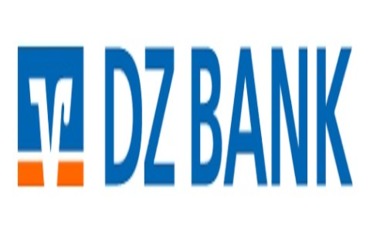 DZ Bank AG, one of Germany’s prominent financial institutions, has ventured into the realm of crypto custody with the introduction of its digital assets custody platform, underpinned by blockchain technology. This move aligns with a broader trend within the German banking sector, where traditional institutions are increasingly offering cryptocurrency services despite the regulatory challenges they face.
DZ Bank AG, one of Germany’s prominent financial institutions, has ventured into the realm of crypto custody with the introduction of its digital assets custody platform, underpinned by blockchain technology. This move aligns with a broader trend within the German banking sector, where traditional institutions are increasingly offering cryptocurrency services despite the regulatory challenges they face.
DZ Bank’s freshly unveiled digital assets custody platform is strategically crafted to cater to institutional clients, granting them access to crypto securities. Notably, this includes the crypto bond issued by Siemens, a significant player in the industry.
Germany’s DZ Bank enters the crypto custody arena, reflecting a broader shift in the nation’s financial sector
Holger Meffert, who serves as the Head of Securities Services & Digital Custody at DZ Bank, expressed the institution’s steadfast commitment to distributed ledger technology (DLT). He noted that the bank envisions a significant proportion of capital market operations being conducted via DLT-based infrastructures within the next decade. Furthermore, they view DLT as a complementary technology alongside established infrastructures in existing capital market processes in the medium term.
DZ Bank’s aspirations extend beyond institutional clients. The institution intends to broaden its range of services to encompass not only institutional investors but also private customers interested in cryptocurrencies such as Bitcoin. To facilitate this expansion, the bank initiated the process of securing a crypto custody license from the Federal Financial Supervisory Authority (BaFin) in June 2023.
This development aligns with the increasing interest of traditional German banks in the cryptocurrency domain. Earlier in the same year, Deutsche WertpapierServiceBank (Dwpbank) made its entry into the crypto trading platform arena by introducing the wpNex crypto trading platform. This initiative granted access to the digital asset industry for 1,200 banks and savings banks in Germany.
In addition to Dwpbank, the asset management group DWS, which is majority-owned by Deutsche Bank, announced its entry into the European market. Their focus is on offering exchange-traded products related to cryptocurrencies and other digital solutions tailored to provide investors access to blockchain applications and digital assets.
In line with this trend, institutions such as Commerzbank and DekaBank, among others, are actively pursuing crypto custody licenses from Germany’s financial watchdog, BaFin. These developments collectively underscore the German banking sector’s growing inclination toward embracing the cryptocurrency wave, as they make concerted efforts to offer a spectrum of crypto-related services to both customers and institutional clients.
Despite the prevailing regulatory challenges, German banks appear to be adapting to the evolving landscape of cryptocurrencies, positioning themselves to cater to the needs and demands of an increasingly crypto-savvy clientele. This shift underscores the evolving dynamics within the financial sector, where the once-nascent world of digital assets is steadily being integrated into the offerings of established financial institutions.








